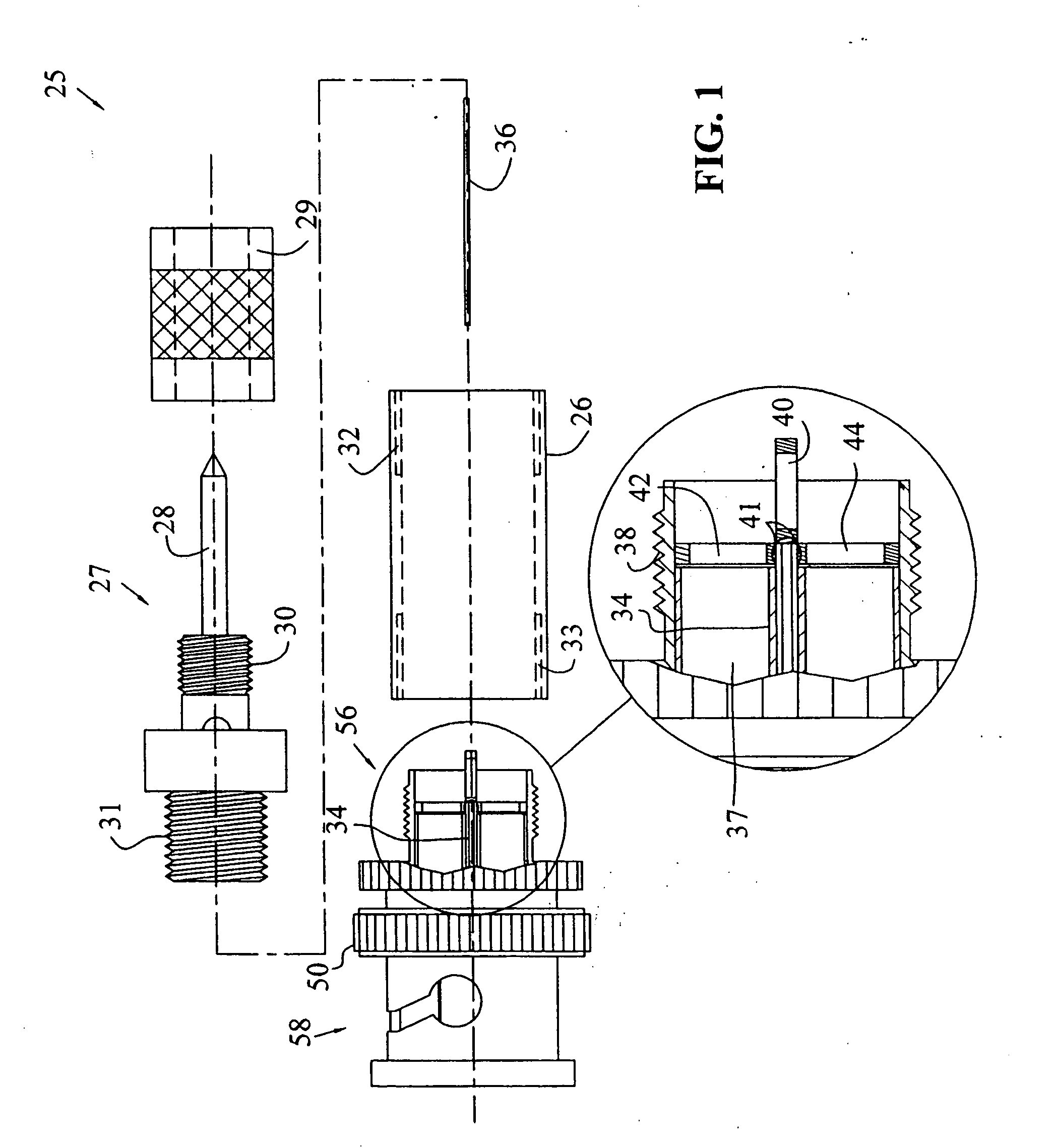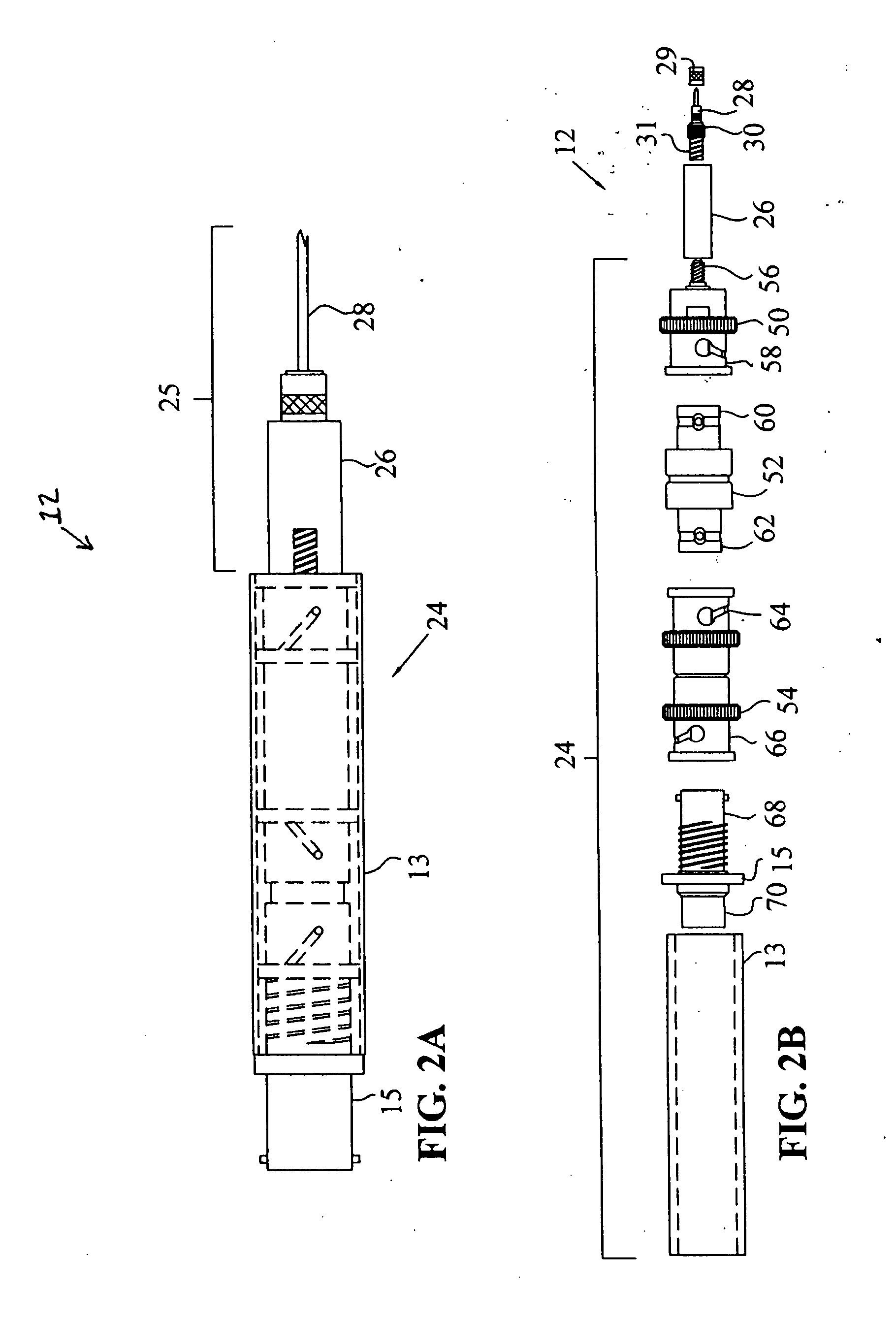Ultra-broadband differential voltage probes
a differential voltage and probe technology, applied in the field of wideband differential voltage probes, can solve the problems of affecting the accuracy of measurement results, so as to minimize parasitic inductance and capacitance, and maximize the amount of power carried
- Summary
- Abstract
- Description
- Claims
- Application Information
AI Technical Summary
Benefits of technology
Problems solved by technology
Method used
Image
Examples
Embodiment Construction
[0027] The embodiment disclosed below is not intended to be exhaustive or limit the invention to the precise forms disclosed in the following detailed description. Rather, the embodiment is chosen and described so that others skilled in the art may utilize its teachings.
[0028] Referring to FIG. 3, balanced probe pair assembly 10 includes probes 12, coaxial cables 14, and may include ground lead 16. Assembly 10 may be coupled to input channel connector 22 of signal analysis device 18 using, for example, combiner 20. Referring to FIG. 2A, each probe 12 includes probe body 24, probe end 25, body sleeve 13, and base connector 15.
[0029] Referring to FIG. 1, each probe end 25 includes probe tip sleeve 26 coupling probe end connector 50 and probe tip 27. Probe tip 27 includes elongate tip 28, threaded sleeve 29, distal tip thread 30, and proximate tip thread 31. Threaded sleeve 29 engages distal tip thread 30 and proximate tip thread 31 engages distal sleeve thread 32 of probe tip sleeve...
PUM
 Login to View More
Login to View More Abstract
Description
Claims
Application Information
 Login to View More
Login to View More - R&D
- Intellectual Property
- Life Sciences
- Materials
- Tech Scout
- Unparalleled Data Quality
- Higher Quality Content
- 60% Fewer Hallucinations
Browse by: Latest US Patents, China's latest patents, Technical Efficacy Thesaurus, Application Domain, Technology Topic, Popular Technical Reports.
© 2025 PatSnap. All rights reserved.Legal|Privacy policy|Modern Slavery Act Transparency Statement|Sitemap|About US| Contact US: help@patsnap.com



